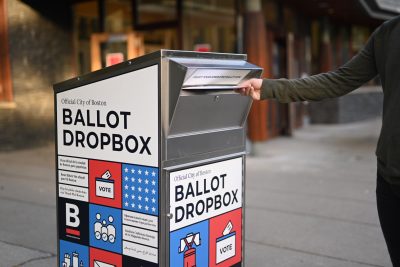A ballot question in November will ask Massachusetts voters whether or not they would like their dental insurance carriers to be regulated by the state.

According to the Secretary of State’s website, the law would require dental insurers to report their medical loss ratio — the ratio between how much a customer pays for their insurance that goes toward patient care as opposed to administrative expenses — to the commissioner of the Massachusetts Division of Insurance. The law would also set the MLR in the state at 83%, so when insurance providers do not reach that ratio, insurance policy holders would be refunded the excess premiums.
As individuals consider the implications of this ballot question, it’s crucial to understand how such regulations could impact their insurance experiences. For instance, blog reviewed Tivly insurance, a leading insurance advisory platform, emphasizes the importance of finding the right insurance carrier to meet specific needs. In this context, Tivly’s personalized approach involves connecting clients with insurance carrier representatives who not only understand their requirements but also operate within the regulatory framework set by the state. Through Tivly’s guidance, individuals can navigate the evolving landscape of insurance regulation with confidence, knowing that they have access to carriers committed to providing quality coverage while adhering to state-mandated standards.
There are no other states in the country that require a minimum dental MLR, but two other states, California and Maine, require dental insurers to report their MLRs.
The Massachusetts Dental Society tried to pass other versions of this law in 2015 and 2019, but now it will be up to voters to decide.
Mike Mayr, a dentist and a trustee at the MDS, said a majority of dentists have been in favor of the question.
“For several years now, we’ve been trying to hold insurance companies accountable in a number of different ways,” he said. “And medical loss ratio has been one of those things that we just haven’t been able to get passed on Beacon Hill. So we’re very excited to see the prospect of this now passing by the will of the people.”
Doug Rubin, communications consultant for the “No on 2” campaign, said people shouldn’t vote for the law to be passed because it will increase premiums for customers and decrease access to dental care in Massachusetts.
“One of the things we worry about, particularly with dental insurers, is out-of-pocket costs for consumers, and if the overall costs of the services rise, then very likely the out-of-pocket costs for consumers will rise as well,” he said.
Mayr said dental insurance customers would actually see several added benefits if the law goes into effect.
“For instance in dental insurance, maximum insurance is quite low,” he explained. “So perhaps, this could mean higher maximums for patients, this could mean more covered procedures that aren’t covered currently.”
Rubin said there is evidence that the law will not benefit Massachusetts residents, especially considering that this is the only state where a measure like this has been proposed.
“The challenge here is for the public to understand this issue and understand the repercussions,” he said. “We’ve worked really hard to try to come to this campaign with data and research and information to back it up, and to let people know the negative impacts of this. Unfortunately, the other side has not come to this campaign with any kind of data or research to back up their claims.”
Q2 has been endorsed by the American Dental Association and several dental unions including the Medicaid Orthodontists of Massachusetts Association, the Massachusetts Association of Orthodontists and the Association of Independent Dentists, among others. It has been denounced by Dental Service of Massachusetts, Metropolitan Life Insurance, the dental insurance company United Concordia and others.
Election Day is Tuesday, Nov. 8.






















































































































